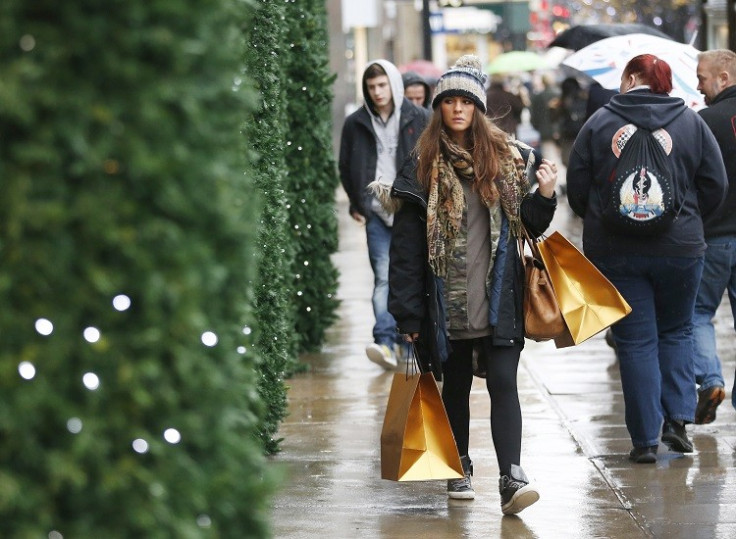UK Retail Footfall Drops ahead of Christmas Shopping Rush

Retail footfall dropped again in November ahead of the festive rush, as consumers delayed their Christmas spending or turned to the internet instead.
Industry group the British Retail Consortium (BRC) said footfall was 2.9% lower than a year before in November, the same annual decline as in October. High streets suffered the greatest fall of 4.2%, while out-of-town locations were down 2.1% and shopping centres dropped 1%.
Consumers have been hit by a real terms decline in wages as prices race ahead of pay growth, in turn hurting the retail sector. Cutbacks to the government's welfare spending have also left people out of pocket.
"This figure is in line with October, and tallies with recent signs in our sales data that festive spending has got off to a slow but steady start," said Helen Dickinson, director general of the BRC.
"While some areas saw an improvement in footfall compared against the previous month, numbers were negative across the board, strengthening the sense that many of us were holding off on major shopping trips until December ushered in the final countdown to Christmas."
However, consumers not setting foot in physical stores does not mean they are not spending at all. Online retail grows year on year.
Research conducted by the telecom and media regulator Ofcom found the average Briton spent £1,175 online in 2012, up 16% from the previous year.
The Ofcom research found that Britons are trustful of internet retailers and have confidence in the cyber security surrounding them. The regulator also said 83% of Britons trust online retailers to send the correct item.
A study by e-retail industry group IMRG and consultancy firm Capgemini predicts Christmas shoppers will spend twice as much through mobile devices in 2013 than they did in the festive period a year before.
UK consumers will shell out £2.9bn through tablets and smartphones during the 2013 Christmas period compared with £1.45bn in 2012.
© Copyright IBTimes 2025. All rights reserved.






















